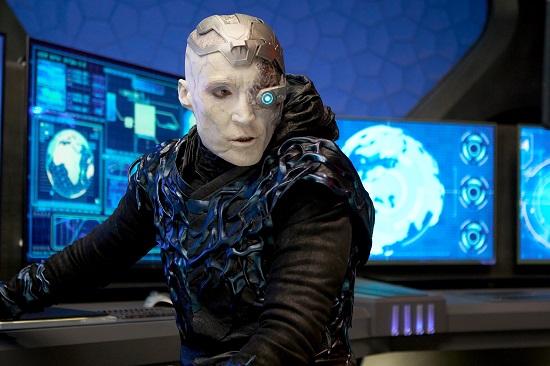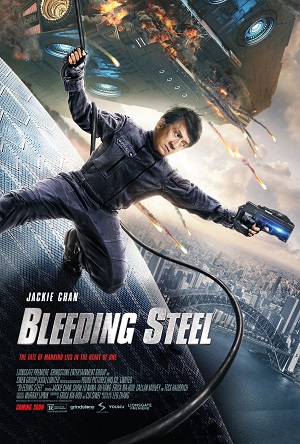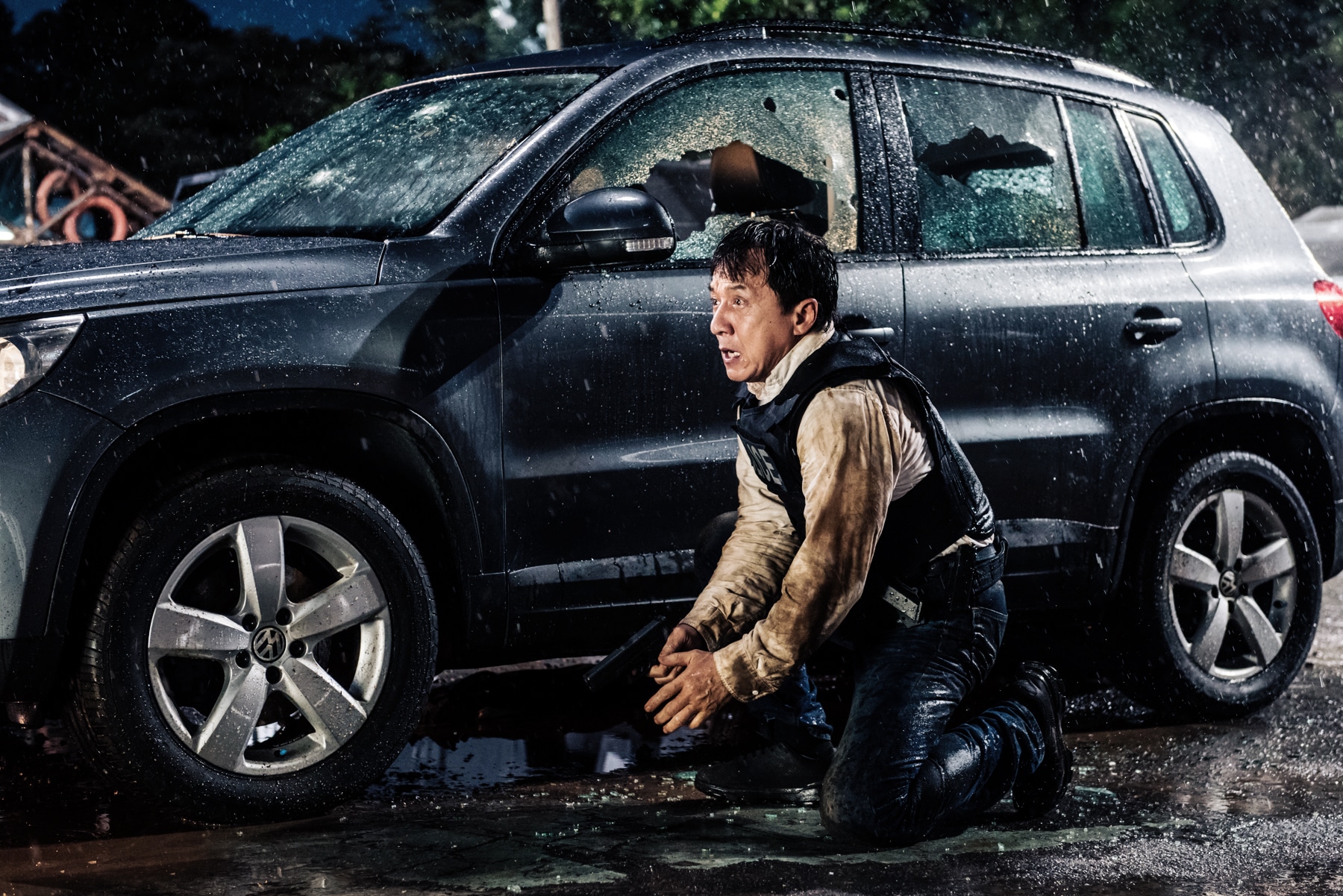 Recent months have been a busy time for Jackie Chan fans, or at least it feels that way around these parts, as we’ve had a slew of the Hong Kong action superstar’s hits released to Blu-ray in the UK (Police Story and Police Story 2, Project A and Project A Part 2, City Hunter). In the midst of all these comparative golden oldies, we might almost forget that, with well over a hundred films on his CV, Jackie is still as busy today as he’s ever been; and, despite various claims over the years of his retirement from the genre, the now 64-year old actor is still working first and foremost in action, even if the films in question are oftentimes quite far removed tonally from those on which he made his name.
Recent months have been a busy time for Jackie Chan fans, or at least it feels that way around these parts, as we’ve had a slew of the Hong Kong action superstar’s hits released to Blu-ray in the UK (Police Story and Police Story 2, Project A and Project A Part 2, City Hunter). In the midst of all these comparative golden oldies, we might almost forget that, with well over a hundred films on his CV, Jackie is still as busy today as he’s ever been; and, despite various claims over the years of his retirement from the genre, the now 64-year old actor is still working first and foremost in action, even if the films in question are oftentimes quite far removed tonally from those on which he made his name.
2017’s Bleeding Steel, from director Leo Zhang (who previously directed Jackie’s son Jaycee in 2012’s Chrysanthemum to the Beast), stands as a good example of this tonal shift in the actor’s filmography. A quirky blend of cop thriller and super-powered cyborg sci-fi, it’s a fun, pulpy concept that promises B-movie thrills galore, and for the most part makes good on this; it’s just that, well, it doesn’t really feel all that much like a Jackie Chan movie. For all its inherent absurdity, it is for the most part played outwardly straight, with little of the comedic flourish that has previously defined the leading man’s body of work. As such, it rather leaves you feeling they could have cast just about any mature action star in the lead and it wouldn’t have made much difference. This is kind of a big deal, given that Jackie’s unique personality has always been vital to making his work stand apart.

Jackie is Special Agent Lin Dong, and when we meet him in the grip of a terrible dilemma as he races to be at the side of his leukemia-stricken daughter in hospital, but is being called back to work to oversee the transfer of a vitally important witness. One gut-wrenching bout of absent father’s guilt later, and he’s on the job transporting the witness – a brilliant geneticist – along with the rest of his unit (every single one of whom looks young enough to be his kids, but let’s not dwell on that). But of course, things don’t go to plan, and the agents find themselves under attack and hopelessly outgunned by a small army of mysterious figures in space-age armour. These turn out to be cybernetically enhanced superhumans born of the geneticist’s research, headed up by the sinister Andre (Callan Mulvey). With nothing left to lose, Lin boldly fights to the end – or it seems.
Suddenly we skip ahead 13 years, and Lin’s daughter Nancy (Na-Na OuYang) is alive and well, going to school in Sydney with seemingly no memory of her childhood illness, or her father. However, when a local science fiction novelist publishes his latest book – entitled Bleeding Steel, funnily enough – whose story adheres a little too closely to those mysterious, hushed-up events of 13 years earlier, various forces merge on Sydney to confront him to find out where he got his information. These ominous visitors include the villainous Andre and his anonymous associate credited only as the Woman in Black (Tess Haubrich), computer hacker Leeson (Show Lo) – and, yes, Lin Dong himself, who it transpires has kept a close eye on his estranged child since that fateful night drove them apart. Old adversaries are promptly at battle once more, and the unwitting Nancy finds herself in the eye of the storm, as she’s much more closely involved with this top secret cyber-genetic-technological malarkey than she knows.
Bleeding Steel is one of those movies whose heart and soul might well have been transplanted directly from the mid-to-late 1980s: in taking an ostensibly earthbound action set-up and giving it a sci-fi twist, it’s in a similar spirit to the likes of RoboCop, Universal Soldier, Alien Nation, or Dark Angel. Approached with that mindset, there’s no reason it shouldn’t make for enjoyable viewing. While it’s clearly not a megabudget production, the effects and stunts are impressively done and the cast is mostly endearing. Naturally the plot is borderline nonsensical, but this is hardly unusual for films of this ilk, and there’s enough stuff going crash, bang and wallop to keep you distracted.
Again, though, Bleeding Steel seems most likely to disappoint as a Jackie Chan movie. I’ll admit to not having seen all that much of Jackie’s work from the last five years or so, but it’s long been evident that, in his increasing years, he’s been eager to step back from physical comedy and prove his merit as a serious actor. All power to him for that, but I can’t help feeling a movie in which he battles cybernetic super-soldiers might have benefited from just a touch of that old charm. Director Leo Zhang dishes up something a little darker and grittier than we necessarily expect from Jackie, with more hard-hitting violence. Also, whilst Jackie remains the principle lead protagonist, he shares the spotlight a lot more than we might expect with his younger co-stars; again, not necessarily a bad thing, just not what his biggest fans might expect. On top of all this, a certain breed of Jackie Chan fan might be rather taken aback to see him exclusively driving Audis rather than Mitsubishis.
All this having been said, if you’re in an undemanding mood and up for some simple popcorny fun, Bleeding Steel should fit the bill, even if it’s hardly vintage Jackie Chan material. But hey, it’s not like there are no signature Jackie moments at all; for example, if you’ve always wanted to see him do his thing on top of the Sydney Opera House, it’s worth the asking price for that alone.
Bleeding Steel is available now on VOD (iTunes, Amazon, Google, Microsoft, Sky Store, Sony, TalkTalk, Ubiquity).
